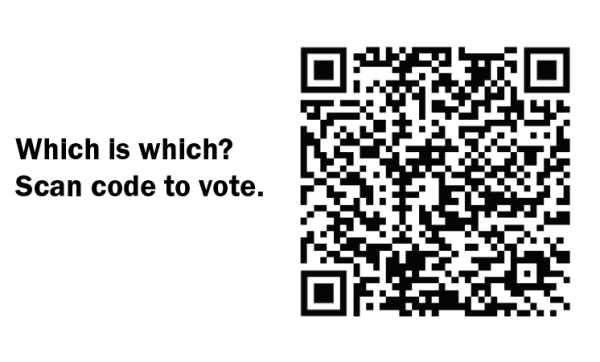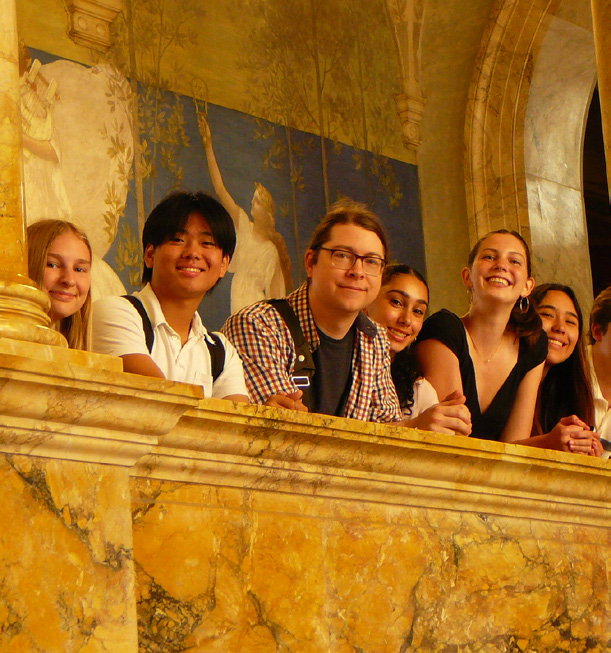To explore A.I.’s potential as a writer, The Record created two versions of this article: one written by the author and the other by ChatGPT. Can you tell the difference? Vote at the end of the article.
Article 1:
Using A.I. technology without permission to complete academic assignments is now explicitly barred by the school’s academic integrity policy, according to a February 22 email sent to the student body by Mr. Richard Davis, the dean of academic life.
The addition to the policy comes amid a rise in large-language models such as OpenAI’s ChatGPT, which can respond to users’ prompts with startlingly advanced and human-like text. Since the public release of ChatGPT in November of 2022, the role of A.I.-generated content in academia has sparked debate among educators, students, and schools.
The program has sparked concerns in schools about credibility and intellectual honesty, as students turn to the technology to generate ideas and even write their essays for them. Since ChatGPT is trained on human language, it is excellent at imitating the patterns of human writing, which can make it difficult for teachers to discern what student work is their own.
“It cannot judge factual correctness or generate particularly interesting content or convincing arguments,” said Mr. Davis, “nor does it understand tone, context, nuance, word choice, or culture … at least not yet.”
However, Dr. Wei Liu, the school’s Chinese program coordinator, sees potential in using A.I. technology like ChatGPT in her curriculum. “For language learning, ChatGPT can be an invaluable resource for students to expand their linguistic abilities,” she said. “Through the provision of translations, definitions, and contextual examples, ChatGPT has the ability to enhance students’ communication skills and overall proficiency in foreign languages.”
Student responses to AI and the new policy varies. Jayden Morgan ’25 said, “I believe that with the rise of chatGPT and other A.I., teachers will be forced to design systems where their students are engaged and enjoy what they are learning, that way they won’t feel the need to rely on A.I. to give them answers.”
The rapidly evolving development of A.I. technology means school policies must change to keep up. Mr. Davis concluded his email to the school by saying, “As a School, we will pay close attention [to the development of A.I. technology], so that we can begin to identify and respond to the new social, political, and cultural implications of A.I. – in addition to the educational consequences.”
Article 2:
In recent years, there has been a growing interest in the use of AI technology in schools, including tools such as ChatGPT, which is an AI language model that can generate human-like responses to text input. While these technologies have the potential to enhance learning and teaching experiences they also raise concerns about data privacy, ethics, and accuracy of information.
To address these concerns, on February 22, Mr. Richard Davis, the dean of academic life, released a new policy that regulates the use of AI technology in classrooms. The goals of these policies include ensuring the safety and privacy of students, promoting ethical and responsible use of AI, and ensuring that AI technology is used in a way that is consistent with educational goals.
Student and faculty opinions on ChatGPT and other AI technologies at the school vary widely. Some students and faculty members view these technologies as useful tools for improving educational outcomes and making teaching and learning more engaging and interactive. Dr. Wei Liu, instructor in Chinese and Chinese program coordinator, said, “For language learning, ChatGPT can be an invaluable resource for students to expand their linguistic abilities. Through the provision of translations, definitions, and contextual examples, ChatGPT has the ability to enhance students’ communication skills and overall proficiency in foreign languages.”
However, there are concerns about the potential for students to become overly reliant on AI technology, which could lead to a reduction in critical thinking skills and the ability to engage in complex problems. While AI technology can enhance learning experiences, it is important to ensure that students continue to develop a range of skills and abilities that will prepare them for the challenges of the future. Mr. Davis said, “It cannot judge factual correctness or generate particularly interesting content or convincing arguments, nor does it understand tone, context, nuance, word choice, or culture … at least not yet.”
Overall, school policies on AI technology are likely to evolve and change as the technology advances and as the school continues to assess the benefits and risks of using these tools in educational settings. It is important for schools to carefully consider the potential benefits and risks of AI and to develop policies that are grounded in best practices and ethical principles.







